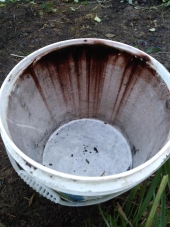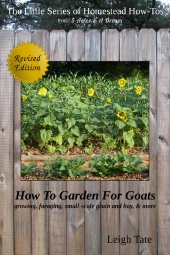
 4
4




 11
11




I don't own the plants, they own me.
 7
7




 10
10




 6
6




Alison Godlewski wrote:So is it healthy to put out bird seed? We are taught to never feed the ducks, chipmunks, bears under any circumstances. Why is it ok to feed the birds? Any knowledge? Facts? Research? !
Invasive plants are Earth's way of insisting we notice her medicines. Stephen Herrod Buhner
Everyone learns what works by learning what doesn't work. Stephen Herrod Buhner
 8
8




Devoured by giant spiders without benefit of legal counsel isn't called "justice" where I come from!
-Amazon Women On The Moon
 11
11




Lorinne Anderson: Specializing in sick, injured, orphaned and problem wildlife for over 20 years.
 4
4




I am only one, but still I am one. I cannot do everything, but still I can do something; and because I cannot do everything, I will not refuse to do something that I can do. (E.E.Hale)
 1
1




 2
2




 5
5




Anita Martin wrote:goldfinch on teasel.
 2
2




I want to be 15 again …so I can ruin my life differently.

 3
3









 3
3




 2
2




Joseph Lofthouse wrote:Species like house sparrows, pigeons, doves, starlings, pheasants, quail, etc have followed the human civilization wherever it leads. It is those birds that I think of as belonging to the human guild. Many of them are primarily urban and suburban birds. Probably could add robins and crows to that list. And monk parakeets.
 2
2




$10.00 is a donation. $1,000 is an investment, $1,000,000 is a purchase.
 1
1




Hester Winterbourne wrote:House martins are a great example. Surely before there were houses there would have been huge areas of the country where there were simply no nest sites for them.
"Si hortum in bibliotheca habes, nihil deerit." [If you have a garden and a library, you have everything you need] Marcus Tullius Cicero in Ad Familiares IX, 4, to Varro.











 3
3




"Si hortum in bibliotheca habes, nihil deerit." [If you have a garden and a library, you have everything you need] Marcus Tullius Cicero in Ad Familiares IX, 4, to Varro.
 1
1




echo minarosa wrote:
But there are clearly times when feeding is detrimental. Look no further than public feeding spots for ducks and geese. People usually bring junk food...bread to feed them. You almost never see grains, fish parts, etc (depending on what your recipient is). One place in my area is between 5 restaurants and people bring out their doggy bags for the ducks and geese. All they get is inappropriate food all the time. The birds are there in such huge numbers and in such a small area that diseases quickly spread and they get large population buildups which then crash. The diseases like avian botulism are horrible ways to die. People mean well but don't understand the implications of their actions.
Still able to dream.

 2
2




 2
2




I have Hobbit feet, but if I keep them shaved, no one notices.
 4
4




 2
2




Lorinne Anderson: Specializing in sick, injured, orphaned and problem wildlife for over 20 years.
 1
1




Forever oscillating between wondering how I can fit everything I want to grow into my tiny urban garden (hahaha I can’t) and how to make enough money to buy my dream mini farm where I can grow everything I want to grow, raise chickens and be a haven for my local pollinators and wildflower species 😁🌱🌻




Steve Earsom wrote:Last summer, I started a project to make bird treats in the garden. I made bird cake. Luckily, my birds love it. And now I want to share the guide with anyone who needs it. The process is very simple. All you need to do is prepare the suet, a mixture of bird seeds, worm powder, and raisins. Then mix them well in a towel bucket, melt the suet, and mix the other ingredients. Finally, place the cookies in a mold and hang the cookies over the yoghurt jar by wire on a bird feeder or any branch the bird might eat.
 1
1




Invasive plants are Earth's way of insisting we notice her medicines. Stephen Herrod Buhner
Everyone learns what works by learning what doesn't work. Stephen Herrod Buhner

|
And tomorrow is the circus! We can go to the circus! I love the circus! We can take this tiny ad:
"Permaculture Now! - Desert or Paradise?" movie by Sepp Holzer
https://permies.com/wiki/137395/Permaculture-Desert-Paradise-movie-Sepp
|





